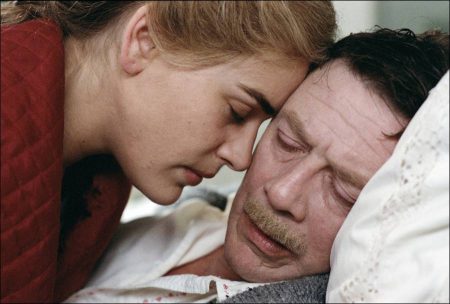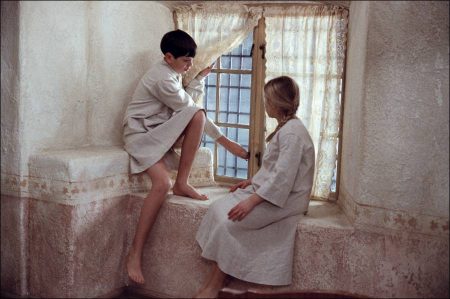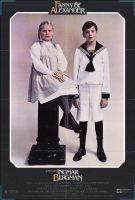Taglines: En film av Ingmar Bergman.
It’s the early 20th century Sweden. Adolescent siblings Alexander and Fanny Ekdahl lead a relatively joyous and exuberant life with their well-off extended paternal family, led by the family matriarch, their grandmother, Helena Ekdahl. The openness of the family culture is exemplified by Helena’s now deceased husband ending up becoming best friends with one of her lovers, a Jewish puppet maker named Isak Jacobi, and their Uncle Gustav Adolf’s open liaison with one of the family maids, Maj, who everyone in the family adores, even Gustav Adolf’s wife, Alma.
Between the siblings, Alexander in particular has inherited the family’s love of storytelling, his parents and his grandmother who are actors and who manage their own theater. Things change for Alexander and Fanny when their father, Oscar, dies shortly after Christmas 1907. Although she truly does believe she loves him, the children’s mother, Emilie, decides to marry Bishop Edvard Vergérus, who she first met as the officiate at Oscar’s funeral. She also wants a father figure for the children.
Going into the marriage, Emilie has inclinations that it will be a much different life than she had with the Ekdahls, but is not prepared for the harsh, austere and strict life Edvard rules with an iron fist. Emilie, Alexander and Fanny end up being prisoners in the bishop’s stark and humorless house. As Alexander butts head with his stepfather and tries to learn how to keep to his own principles while obeying Edvard, Emilie tries to figure out a way to regain her and her children’s own destiny, as Edvard will not consent to divorce, and her “desertion” in the eyes of the law means that Alexander and Fanny would become his wards.
Fanny and Alexander (Swedish: Fanny och Alexander) is a 1982 period drama film written and directed by Ingmar Bergman. The plot focuses on two siblings and their large family in Uppsala,[a] Sweden during the first decade of the twentieth century. Following the death of the eponymous children’s father (Allan Edwall), their mother (Ewa Fröling) remarries a prominent bishop (Jan Malmsjö) who becomes abusive towards Alexander for his vivid imagination.
Bergman intended Fanny and Alexander to be his final picture before retiring, and his script is semi-autobiographical. The characters Alexander, Fanny and stepfather Edvard are based on himself, his sister Margareta and his father Erik Bergman, respectively. Many of the scenes were filmed on location in Uppsala. The documentary film The Making of Fanny and Alexander was made simultaneously with the feature and chronicles its production.
The production was originally conceived as a television miniseries and cut in that version, spanning 312 minutes; a 188-minute cut version was created later for cinematic release, although this version was in fact the one to be released first. The television version has since been released as a complete film, and both versions have been shown in theaters throughout the world. The 312-minute cut is one of the longest cinematic films in history.
The theatrical version was released to positive reviews. It won four Academy Awards, including for Best Foreign Language Film; three Guldbagge Awards, including Best Film; and other honours. Fanny and Alexander was followed by stage adaptations and further semi-autobiographical screenplays by Bergman, released as films in 1992: The Best Intentions, directed by Bille August, and Sunday’s Children, directed by Daniel Bergman.
Fanny and Alexander (1982)
Directed by: Ingmar Bergman
Starring: Pernilla Allwin, Bertil Guve, Jan Malmsjö, Börje Ahlstedt, Anna Bergman, Gunn Wållgren, Kristina Adolphson, Erland Josephson, Mats Bergman, Jarl Kulle, Sonya Hedenbratt
Screenplay by: Ingmar Bergman
Production Design by: Marik Vos-Lundh
Cinematography by: Sven Nykvist
Film Editing by: Sylvia Ingemarsson
Costume Design by: Marik Vos-Lundh
Set Decoration by: Susanne Lingheim
Art Direction by: Anna Asp
Music by: Daniel Bell
MPAA Rating: None.
Distributed by: Sandrew Film & Teater (Sweden), Gaumont (France)
Release Date: December 17, 1982 (Sweden, March 9, 1983 (France, October 8, 1983 (West Germany)
Visits: 745


